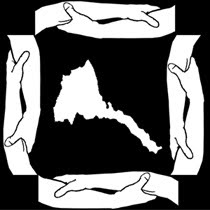present a new report:
The report aims to present the consequences of the general Israeli government policy toward asylum seekers, as it is applied on trafficking, slavery and torture survivors arriving Israel from the Sinai desert.
Based on several indicators, the two NGOs estimate that the number of torture survivors among the newcomers to Israel has grown during 2012. The present policy, in which the people entering Israel are those who are allowed to do so by the IDF, means that only torture victims who present visible signs of torture have managed to enter Israel in the past few months. Currently, based on the NGOs statistics, about 5,000 to 7,000 torture survivors reside in Israel without any social rights or assistance. In addition, a study conducted by EEPA and Tilburg University based on testimonies of tortured Eritrean asylum seekers while in captivity and after, it estimated that 4,000 asylum seekers did not survive the torture camps and journey and lost their lives in the desert in the past five years.
The lack of proper identification procedures and treatment of torture survivors by Israeli authorities can be observed when comparing the number of survivors identified and treated by Israeli authorities to the number of those identified and treated by PHR-IL: During 2011, 54 women complained to the Israeli authorities and revealed the fact that they were sexually assaulted, 23 of them received gynecological treatment. That same year, 1,585 women (the majority of whom are African) were sent by PHR-IL to gynecological treatment and 21 of them underwent abortions.
This report presents Israel’s policy toward torture survivors and the services offered to them after their entry to Israel. The report is based on the knowledge acquired by the Hotline for Migrant Workers, by Physicians for Human Rights- Israel (PHR-IL), and on an examination of 30 Administrative Tribunal protocols of asylum seekers who chose to reveal to the Tribunal the fact that they are torture survivors. Out of 1,543 asylum seekers who entered Israel between June and the end of September, 2012, it seems that only 30 shared with the Administrative Tribunal their experiences in the torture camps. The number of torture survivors is much higher than what is reflected in the Administrative Tribunal protocols. Many torture survivors, especially rape victims, are reluctant to reveal what they have undergone in Sinai, and they are not motivated to do so, since they are unaware of the fact that being recognized as a victim of slavery might result in their release from prison. As will be shown, the nature of the Administrative Tribunal hearings also might discourage asylum seekers from elaborating on their story.
The report ends with the translations of 14 out of the 30 testimonies, as given to the Administrative Tribunal at the Saharonim internment camp by torture survivors who arrived in Israel between June and September 2012. These torture survivors presented a version of events that was credible enough for the Tribunal to transfer the protocols for further examination by relevant authorities in order to establish if they are slavery victims.
The main findings of the 30 protocols of the torture survivors:
v 100% of the survivors are Eritreans.
v In 30% of the protocols, the Tribunal noted that marks of torture are visible on the survivors’ bodies (9 out of 30).
v Six (four women and two men) were recognized as 'slavery victims,' but only one man was transferred to a shelter for TIP victims, and the other five are still waiting, for several months now, for their release.
v 60% of the survivors are women (22 out of 30).
v More than half of the women stated openly that they were raped (18 of 30).
v The survivors were held hostage for an average of 140 days.
v On average, each torture survivor paid $33,660 in ransom for his/her release.
v 50% of the interviewees were recognized by the Tribunal (and all of them by the same judge) as being kidnapped to Sinai and sent to Israel against their will (14 out of 30).
Sigal Rozen
Public Policy Coordinator
Hotline for Migrant Workers

Nessun commento:
Posta un commento